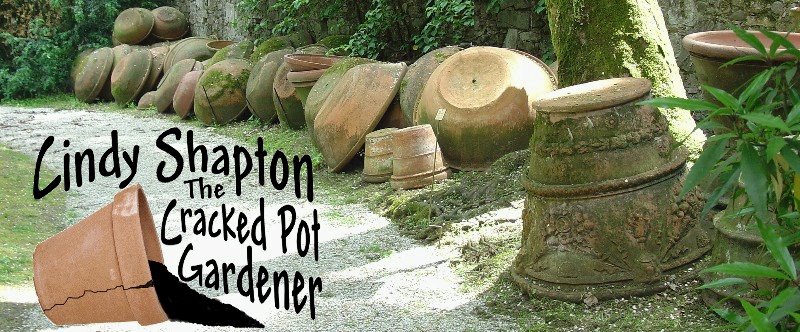 Spring is in the air...and a gardener’s thoughts turn to dirt, well soil actually as my ole college professor would remind us. “Dirt is what you get under your nails, here at UT we study soil”, he would say. We gardeners look for every opportunity to get our hands covered with the stuff. It is therapy for the soul; the aroma of fresh soil released into the air as we dig is exhilarating. It is also exercise, which one realizes later, after digging in the dirt for any length of time. I usually hurt in places I didn’t know I had muscles, but after a few digging sessions this too passes and I get back to the big strong farm girl that my husband married!
Spring is in the air...and a gardener’s thoughts turn to dirt, well soil actually as my ole college professor would remind us. “Dirt is what you get under your nails, here at UT we study soil”, he would say. We gardeners look for every opportunity to get our hands covered with the stuff. It is therapy for the soul; the aroma of fresh soil released into the air as we dig is exhilarating. It is also exercise, which one realizes later, after digging in the dirt for any length of time. I usually hurt in places I didn’t know I had muscles, but after a few digging sessions this too passes and I get back to the big strong farm girl that my husband married! Soil talk need not be boring if you remember that it is the foundation to any garden. In fact soil is probably the most important ingredient to a successful, healthy gardening experience. It is worth the extra effort, patience, time and $$ to be sure it is right before planting anything. By starting with the proper soil, many problems like insect damage and plant diseases can be avoided, giving you a beautiful, lush, productive garden.
Composition of soil should be half solid material and half open or pore space with living organisms (that’s right, soil is alive!), decaying matter and minerals thrown in for good measure. Sound complicated? Not at all! Think like a plant, in order to be healthy the roots need to be able to penetrate the soil and go deep enough to find good moisture and take up needed nutrients. DeWayne Perry, UT extension agent/soil specialist of Williamson County tells me that soil is all about physical structure and content.
Now this is the fun part, become a soil sleuth... What is your soil made of? Is it loose, friable and rich in organic material? Does it drain well after a rain or do you notice that your plants wilt soon after a rain and require additional watering? Has your soil been compacted and is hard as a brick? Do you have a new home and realize the top layer of your soil has been removed and no one left a map to tell you where it went? Next, Find out if your soil is fertile and the pH level by taking a soil test. Your local Ag Extension Office can help you with this. It is simple and in a few days you will get a report that tells you the available levels of nitrogen, phosphorus, potassium, minerals and pH levels. This report also recommends amendments to add if needed.
Okay, you have analyzed your soil composition and found out you have perfect, wonderful rich, fluffy, drainable soil. No? Not to worry, we can’t always choose the perfect soil situation in which to garden but we can work with it to make it productive by amending. Armed with your type of soil knowledge and soil test you are ready to get to work. If you are reading this and wishing you could have done something before your garden was planted, it’s all right, test your soil and add amendments now. It will just be more time consuming to work around established plants, but they will love you for it.
Organic matter is the number one recommendation to help improve just about any soil condition. Compost would be my all around choice as it alive with microorganisms, provides nutrients (a natural fertilizer), drainage, texture to retain moisture and benefit root growth. Add a one to two inch layer and work in to your current soil. It also is great to use as mulch.
If you have the brick-type, compacted soil you may want to build raised beds and fill with compost or a soil product.
Be creative and be kind to your dirt, it will be the beginning of something great!
Here are two great places to buy compost in the Nashville, TN area:
The Compost Farm of Franklin. They sell compost in bags or bulk and will deliver. http://www.compostfarm.com/
Second Wind Farm Compost, Pick-up at the farm or get it delivered - call Larry Mochera at 615.943.8354 or email him at secondwindfarm@united.net


No comments:
Post a Comment